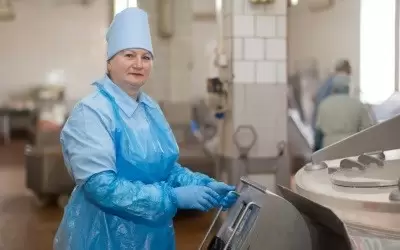Two years after the German government banned subcontracting in the meat sector, IUF affiliate NGG has assessed the progress made in reducing rights violations and establishing labour standards.
Before the ban, subcontracting was prevalent in all aspects of the work including slaughtering, cutting, and processing, which made Germany a magnet for European meat companies seeking to lower production costs using cheap labour. In 2020, as SARS-COV-2 spread rapidly throughout the global meat processing workforce causing mass COVID-19 infections, the German government finally responded to years of lobbying by unions and community allies by passing the Protection Control Law for the Meat Industry. Since the law was passed:
- Employers are required to employ workers directly, and temporary work is restricted to 8% of the annual workload; temporary workers must receive equal pay and treatment to that which applies to permanent workers and must be covered by a collective bargaining agreement
- 35,000 subcontracted workers have been hired directly by meat companies
- The law requires the electronic registration of working time to enforce the observance of maximum working hours and mandatory rest breaks
- The NGG succeeded in concluding a national collective bargaining agreement with a minimum wage of 11 EUR per hour rising to 12.30 EUR per hour during the term of the agreement; the minimum wage is a base throughout the industry
- Occupational health and safety has dramatically improved, and trade union membership has increased; as the NGG organizes more workers, it continues to monitor the implementation of the law and is determined to eradicate all forms of exploitation of the migrant workers on which the industry depends.
IUF General Secretary Sue Longley stated, “We will continue to campaign and support affiliates to build union organization and collective bargaining in the meat sector and to spread the ban on subcontracting.”
